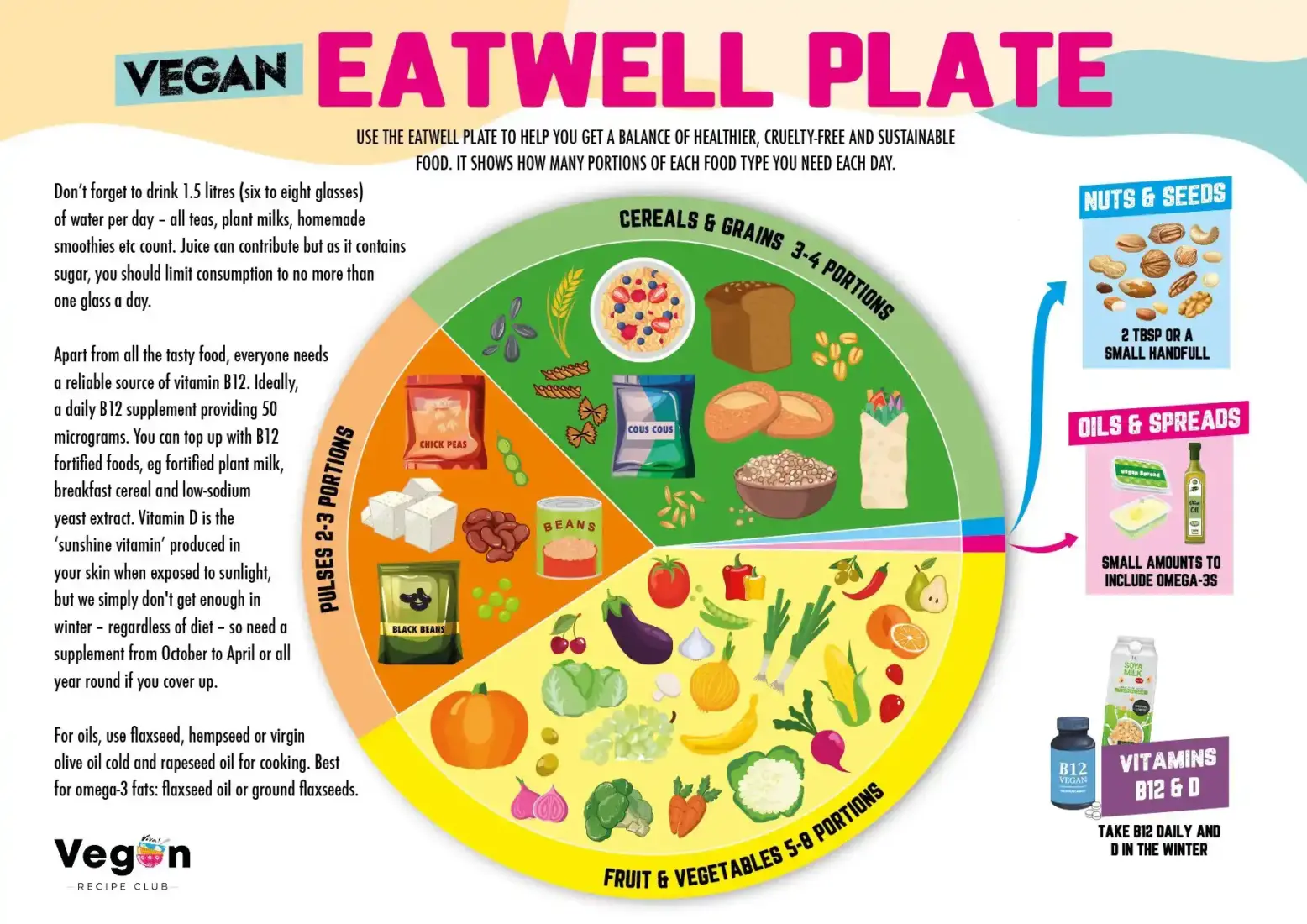Balanced vegan

Eating a balanced vegan diet is important for good health
What is a balanced vegan diet?
A balanced vegan diet includes plenty of fruit and vegetables, wholegrain foods, pulses, nuts and seeds. You won’t be missing out on anything – in fact, much of what you already eat is probably vegan! With some simple swaps, you can enjoy a wide range of classic favourite dishes plus new and exciting ones! However, a vegan diet can still be unhealthy if it’s based on pies, biscuits and chips. If you follow some basic guidelines, with the occasional treat, you will soon reap the benefits.

What I need each day for good health
| 5-8 portions of fruit and vegetables | fresh, frozen, steamed, cooked, blended in smoothies or dried. The natural compounds that give foods their bright colours are also what protects your health. So, add some colour to every meal! |
| 3-4 servings of cereals and grains | brown rice, wholemeal bread, wholewheat pasta, oats and quinoa. Experiment with black rice and red quinoa for an added boost |
| 2-3 servings of pulses | peas, beans, lentils, soya and products made from them (tofu, tempeh and edamame) |
| 2 tablespoons or a small handful of nuts and seeds | raw, lightly roasted, blended into butters or chopped in nut roasts |
| Small amounts of vegetable oil | flaxseed, hemp seed or virgin olive oil used cold; rapeseed or soya oil for cooking |
| A daily dose of vitamins B12 and D (this applies to everyone regardless of diet) | |
Plant-based meat alternatives
Processed plant-based meats are not considered healthy as they tend to contain higher levels of fat and salt than wholefoods. However, they are still better for you than meat in terms of cardiovascular disease and cancer risk and some plant-based meats have been found to have a beneficial effect on gut bacteria which can provide significant and wide-ranging health benefits. They are often tasty, easy to cook and can be helpful for people transitioning to a plant-based diet. If you do eat meat alternatives, limit them to just once or twice a week. They also tend to be more expensive than wholefoods, so having them only sparingly makes financial as well as nutritional sense!
What the experts say: